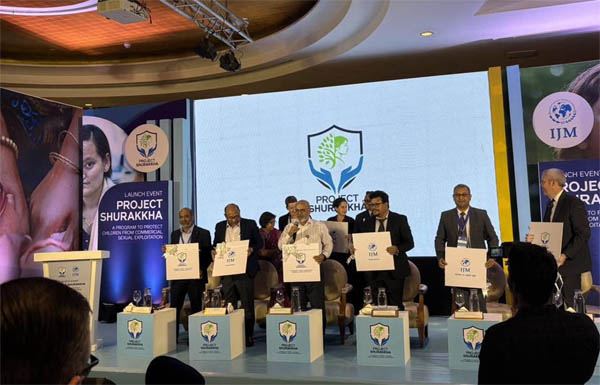News Desk : dhakamirror.com
At least 22 percent of victims of commercial sexual exploitation (abuse of a person, or a minor, through sexual activities in exchange for money, goods, or other benefits) in Bangladesh are children, said speakers at an event yesterday.
They shared the information at the launch of “Project Shurakkha”, an initiative of International Justice Mission (IJM) to protect minors from sex trafficking.
At the inaugural event at a hotel in the capital, IJM presented alarming figures, estimating that 20–50 percent of Bangladesh’s sex trade involves children.
About 40,000 to 100,000 minors are being involved in such trade in brothels, streets, hotels, spas, massage parlours, and private homes, IJM estimates.
Citing a 2023 report by Trafficking in Persons, IJM said an estimated 30,000 girls were victims of child sex trafficking in Bangladesh. Less than 10 percent of female sex workers voluntarily entered Bangladesh’s commercial sex industry, it added.
IJM also cited a survey conducted in Dhaka by Freedom Fund & Population Council on 1,245 female sex workers, which found that 22 percent of street-based and 22 percent of brothel-based workers were aged below 17, totalling approximately 5,000 girls in street-based settings and 700 in brothels.
IJM also shared data from HIV Prevalence Study 2023, which said over 45,000 individuals aged 10 to 19 were engaged in sex work across Bangladesh.
The Project Shurakkha will run until 2030, in order to protect the vulnerable children, said IJM officials.
At the event, NGO Affairs Bureau Director General Daud Miah said child victims of trafficking often remain voiceless.
“When they become victims, fear silences them. They cannot reveal their situation or location. That is why we must identify them properly and take action in the right places,” he noted.
He cautioned that political instability creates scope for traffickers, as law enforcement agencies get deeply engaged in political matters.
Ali Akbar Khan, additional deputy inspector general of CID, described human trafficking as a crime linked with drug smuggling, arms trade, money laundering and radicalism.
Investigators, he said, struggle to secure information, particularly from Middle Eastern countries.
CID officials also warned about the increasing use of obscure online platforms, such as Streamkar, to exploit children.
“This online form of sexual abuse has become a very serious challenge,” said CID Special Superintendent Badrul Alam Mollah. He mentioned such cases involving victims as young as six.
Khondakar Md Mahabubur Rahman, additional secretary of the home ministry, called for joint action. “If we do not work collectively, the impact will not be meaningful. Many projects may run, but unless we ensure proper coordination, the positive impact will not be achieved,” he said.
Tariqul Islam, country director of Justice and Care, said Bangladesh has made progress with legal frameworks and victim guidelines, but weaknesses remain in identification, prosecution and trust in the justice system.
He added that while NGOs are playing a vital role in victim support, their scope is limited without effective law enforcement.
“NGOs cannot arrest perpetrators — that responsibility lies with the police. But once cases move to prosecution, trust and confidence in the process often collapse,” he said, suggesting that a dedicated prosecution support service could help victims navigate the justice system.
Despite thousands of cases filed, convictions remain rare. Of 4,372 cases under the Women and Children Repression Prevention Act between 2011 and 2018, only five ended in convictions, according to IJM.
The Global Slavery Index estimates 1.2 million people in Bangladesh live in modern slavery, it also said.
– Input from The Daily Star was used in this article.





















